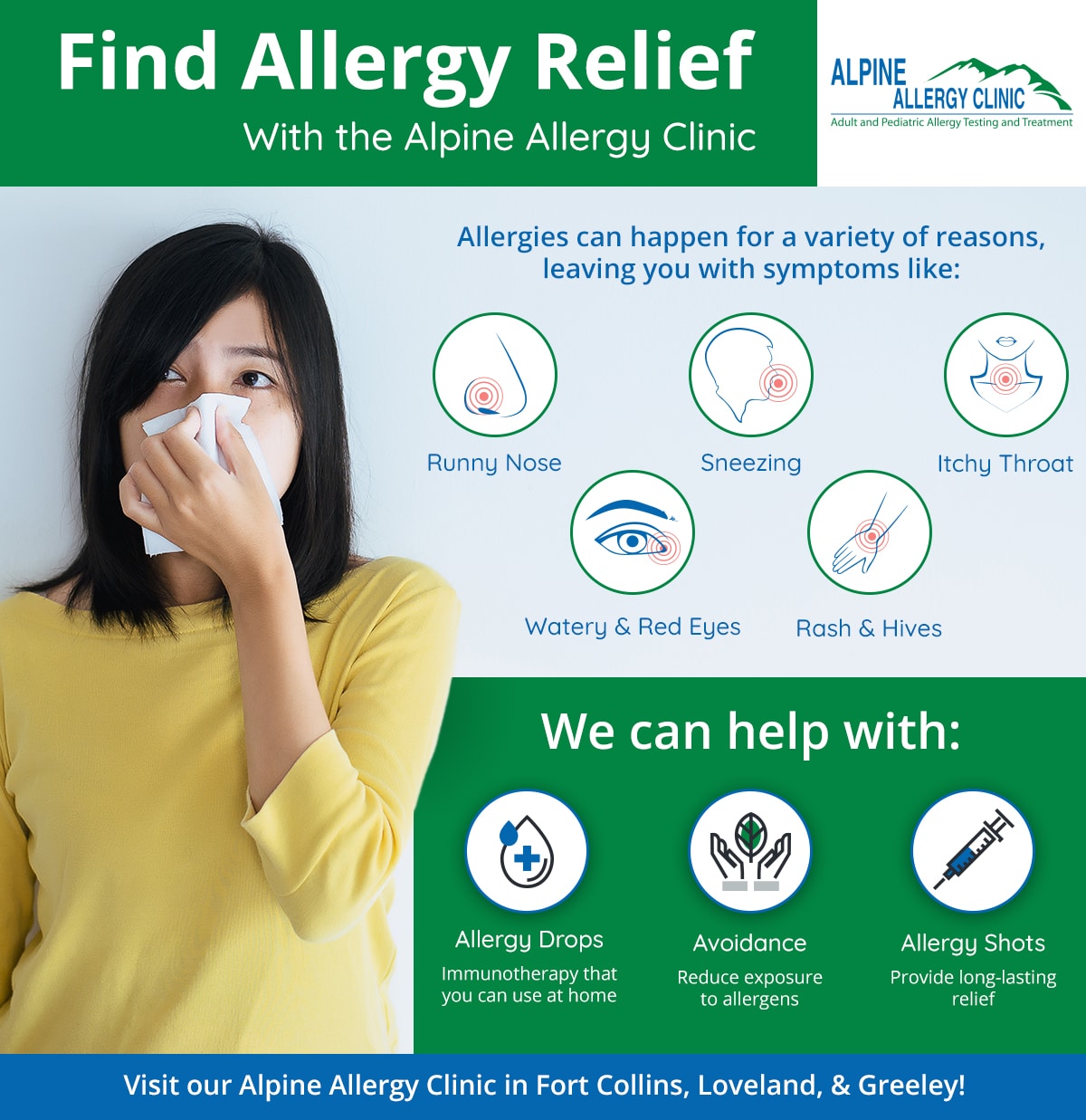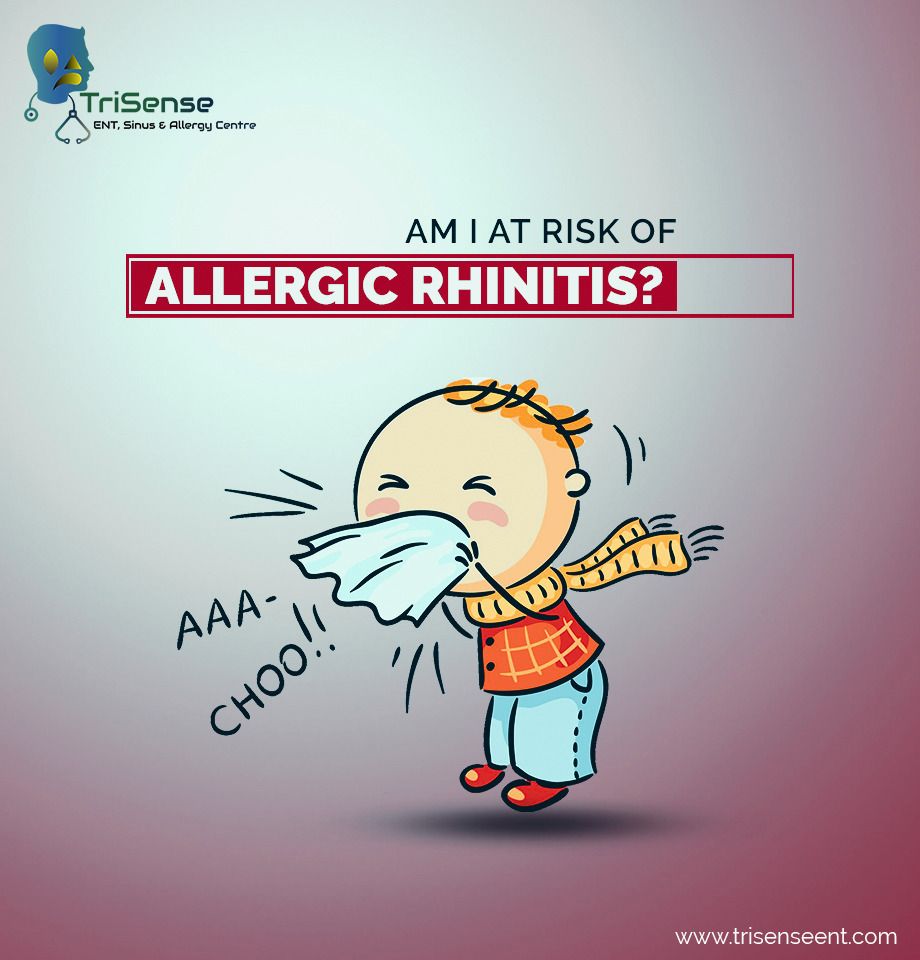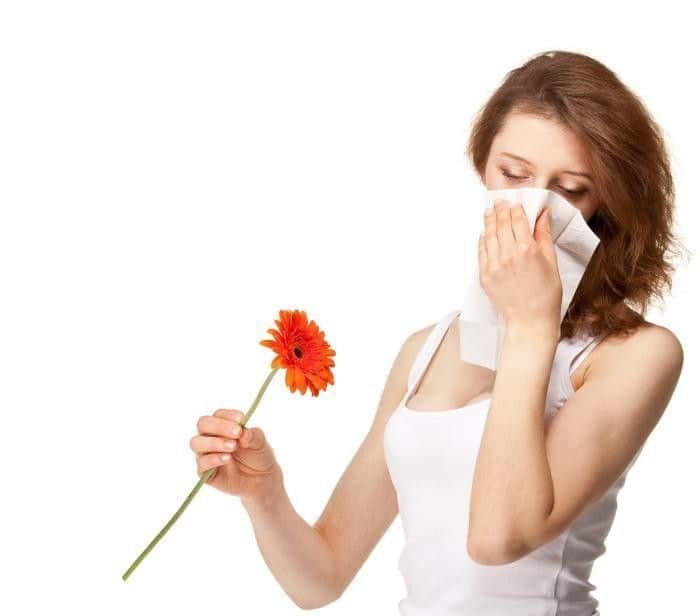Can Allergies Cause A Sore Throat
Yes, sometimes allergies can cause a sore throat among other symptoms. Its all part of the way your body protects itself against allergic reactions.
- After exposure to an allergic trigger, your body releases chemicals called histamines into your bloodstream1. This can cause reactions like itchy eyes, sneezing and that general stuffy feeling.
- Histamines increase your bodys production of mucus, which is used to keep your throat, mouth and nose from drying out2. At normal levels of production, you wont notice mucus, even as it performs important tasks like neutralizing harmful bacteria.
- However, when histamines ramp up your bodys production of mucus, you may feel excess mucus in your throat caused by post-nasal drip. This can irritate your throat and cause a scratchy feeling3.
Histamines are your bodys natural reaction to any allergy trigger. So whether youre exposed to pollen as a hay fever sufferer, or to dust by opening an old book, your body springs into action resulting in the discomfort you feel during an allergic reaction.
If youre experiencing a sore throat as an allergy symptom, there are potential ways to find relief.
But that doesnt mean its not an annoyance! So lets find out how to help or stop a sore throat being caused by allergies.
How Do Allergies Cause A Sore Throat
In order to understand how allergies cause a sore throat, its important to understand how an allergic response happens.
The immune system works to protect your body from diseases, viruses and infections. But for people with allergies, the immune system mistakes harmless substances such as pollen, pet dander, dust mites, certain foods, mold and insect stings as a dangerous intruder. An allergic reaction occurs when your body is exposed to one of these harmless substances, known as an allergen, and the immune system overreacts.
In order to fight off the intruder, the immune system releases antibodies called Immunoglobulin E , which causes the cells to release histamine. Histamine increases mucus production and causes swelling and itching.
The excess mucus can result in postnasal drip, which is when mucus drains down the back of the throat, making it feel raw and irritated. In addition, inflammation can occur in the throat, adding to the discomfort.
Allergy Sore Throat Treatment
So, you have a sore throat, cough, runny nose and congestion. Have you caught a common cold or do you have allergy symptoms? Sometimes, it is even difficult for doctors to distinguish between the two, because their symptoms can be so similar. If you have persistent throat discomfort accompanied by other allergy symptoms, consider that you may have a sore throat due to allergies.
Don’t Miss: Does A Dehumidifier Help With Allergies
Itchy Throat Is A Common Symptom Of Allergies
An itchy throat can be caused by allergies. Allergies occur when your body mistakenly thinks something is foreign and tries to fight it off. Allergens can be environmental or food .
Sometimes, an itchy throat from allergies is caused by a postnasal drip. Other times, it is a sign of oral allergy syndrome. An itchy throat can also be an early sign of a life-threatening allergic reaction known as anaphylaxis.
This article discusses itchy throat allergies and what causes them. It also covers related symptoms and how to treat them.
Verywell / Julie Bang
How Allergies Affect Your Ears Nose And Throat

posted: Dec. 02, 2021.
Most of us who live in Indiana have had some kind of allergy reaction at some time in our lives. But how do allergies actually affect your ears, nose, and throat, and what can you do to treat them? An Ear, Nose, and Throat doctor should be your first call to help you to manage your symptoms and prevent future discomfort. If you are looking for an ENT doctor to treat your allergies in Carmel, IN, consider reaching out to Northside ENT.
Read Also: How To Deal With Allergies
Medications For Seasonal Allergies
If OTC medications for seasonal allergies do not provide relief, a medical provider can prescribe nasal sprays, allergy shots, or other prescriptions that may be more effective.
See your doctor if allergy symptoms are making it challenging to function, or if you have a sore throat that worsens or does not improve.
Can Allergies Cause A Cough
Allergies can also cause you to cough. They can make the back of your throat tickle and cause sinus drainage that makes you very uncomfortable. These allergy symptoms can range from mildly uncomfortable to severe. Patients with asthma may experience wheezing or shortness of breath along with a cough. A cough called by allergies is not contagious but it can certainly be annoying.
Patients with allergies often develop a chronic dry cough that lasts for weeks. You may experience a cough at different times of the year if you have hay fever, also known as allergic rhinitis). Hay fever can cause you to sneeze, have itchy skin, watery eyes, and cough. The congestion you experience during seasonal allergies can also cause dark circles under your eyes.
A cough caused by allergies is much different from a cough caused by an infection. Asthma, whether its chronic or triggered by allergens, can also cause a cough.
However, if you experience a fever, dry cough, shortness of breath, fatigue, or other symptoms, its time to see your doctor.
Recommended Reading: How Long Does A Steroid Shot For Allergies Last
How Can I Protect My Voice
So what can you do to protect your voice from allergens? The first thing is to avoid allergens and keep your home as allergen-free as possible. Keep your windows closed during peak pollen times. Wash your sheets in hot water once a week. Vacuum or run an air filter regularly.
If you still need medicine, use medicines that wont affect your mucus levels.
There are many treatment options for allergies, CEENTA Otolaryngologist S. Brett Heavner, MD, said. For professional voice users, topical medications like nasal steroids and nasal antihistamines seem to work better since they have less of a drying effect on the throat and voice.
Nasal steroid sprays such as Flonase, Rhinocort, and Nasacort are effective in treating allergies. Some pills, such as Singulair and other leukotrienes, can be taken at night and wont dry out your vocal cords the way antihistamines would.
Some patients with severe allergies may qualify for immunotherapy. Immunotherapy is a treatment system where patients are given shots, drops, or tablets of the substance they are allergic to in gradually-increasing doses. This helps patients increase their tolerance to those allergens. It wont cure the allergy, but it will reduce your symptoms.
If you follow these steps you can keep your allergies at bay and help keep your voice clear and strong.
How Allergies Affect Your Ears Nose Throat And Eyes
If you have allergies, the changing of the seasons can be a difficult time of the year for you. The CDC estimates some 50 million people have allergies. Some of these allergies can even develop in adulthood, or change throughout your life.
The area of the body most commonly affected by routine allergies is your ears, nose, throat, and eyes.
Were going to take a look at each of these parts of the body and explain why our bodies may react the way they do. All of these allergies are the result of a foreign substance causing sensitivity in your body. When this happens, your body responds by producing antibodies that release histamine.
It is this histamine that causes the itching and mucus reaction that comes with many common allergies.
Recommended Reading: Is Flaxseed A Nut Allergy
When To See A Medical Provider
Seasonal allergies are common for many people. Even if you know your sore throat or other symptoms are caused by allergies, you dont have to live with discomfort.
A medical provider can identify medications that may provide relief.
If you have a sore throat and are not sure its caused by allergies, a medical provider can perform an examination and run tests to help pinpoint the cause and make sure you get the care you need.
If you have allergy symptoms, but at any time develop the following, seek medical care:
- Yellow or green nasal discharge
- Ringing in the ears
- Problems being able to swallow or talk
Dont Let Allergies Ruin Your Day Find Out How To Get Them Under Control
While some of us welcome spring with open arms, others welcome spring with red, itchy eyes, sneezing, and nasal congestion. If the latter sounds like you then you may be dealing with seasonal allergies. Our Pembroke Pines, FL, otolaryngologists serving Broward County and the Hollywood area, Dr. Craig Shapiro and Dr. Sina Joorabchi, are here to tell you how allergies can affect your ENT health and what we can do to help.
When it comes to seasonal allergies the two most common types are grass and pollen. You may notice that your symptoms flare up when going outside, particularly on days where grass and pollen counts are high.
Whenever grass or pollen comes into contact with your ears, nose, throat, or eyes it causes a histamine reaction within your body. As a result, youll end up dealing with a slew of unpleasant seasonal allergy symptoms, including:
- Nasal congestion
- Tinnitus or vertigo
Those who battle severe allergy symptoms may also experience fatigue on a regular basis. Of course, if you are an allergy sufferer the first thing you want to do is attack your seasonal allergy symptoms head on. Our Pembroke Pines ENT doctor can help you choose the treatment or treatment options that will best manage your symptoms and reduce allergy flare-ups.
Also Check: Can My Dog Take Allergy Pills
Do Allergies Cause A Sore Throat
Yes, allergies can impact your throat. To understand why, you have to know why allergies happen in the first place: If youre allergic to something, your body sees proteins in that substance as a foreign invader. And when those proteins get into your systemsay, by breathing in a whiff of dust or getting pollen blown into your eyesyour immune system launches an inflammatory response in an attempt to protect you.
Related Stories
Part of that inflammatory response involves producing lots of extra mucus. The mucus helps propel the debris out of your body, but it can give you congestion and a runny nose, which drains into your throat. The ears, nose, and throat are all physically connected, so problems in one area can affect another, explains William Reisacher, M.D., director of allergy services at New York-Presbyterian Hospital and Weill Cornell Medicine in New York.
As a result, that mucus can cause post-nasal drip, when the goopy stuff dribbles down the back of your throat and makes it feel raw and irritated. Allergens can also trigger the tissues in the back of your throat to become inflamed, which only adds to the discomfort, Dr. Mehdizadeh says.
How Can You Tell The Difference Between Allergies And A Cold

This time of year, its especially tough to tell what might be causing your sore throat: Is it allergies, a cold, or the flu? And as the Omicron variant of SARS-CoV-2, the virus that causes COVID-19, continues to spread, its more difficult than everone of its symptoms is a scratchy throat. Both allergies and viral infections can cause symptoms like a sore throat, runny nose, headaches, and congestion. How can you tell whats actually making you feel crummy?
The way your symptoms appear is often a big clue: Colds tend to creep up slowly, while allergy symptoms usually flare up shortly after youre exposed to an allergen, per the American Academy of Allergy, Asthma, and Immunology. Meanwhile, if you start to notice itching, stuffiness, or an annoying tickle in the back of your throat after spending some time outside, youre probably dealing with allergies.
Related Stories
If your sore throat tends to get worse or makes it hard to swallow, or you develop a fever, chills, or body aches, youre probably dealing with a cold or infection, Dr. Mehdizadeh says. And if your allergy medications dont seem to be helping, thats also a sign your symptoms could be pointing to a cold, flu, COVID-19, or something else.
Unfortunately, they arent mutually exclusive: Colds and allergies can exist at the same time, Dr. Reisacher says. So if you cant figure out what youre dealing with, talk with your doctor.
You May Like: What To Put On Swollen Eyes From Allergies
Sore Throat From Allergies: Symptoms And Remedies
Among the allergy symptoms that can affect day-to-day life, getting a sore throat from allergies can be especially irritating. Together with a runny nose and itchy eyes, a sore throat can cause discomfort and disruption to your routine.
Allergy symptoms of a sore throat can include a dry, scratchy feeling in your throat. It could be caused by different kinds of allergies, whether seasonal or something in your home that is affecting you.
There are various steps you can take to help manage or even reduce the symptoms.
Find out more about potential sore throat allergy remedies with our helpful guide.
Allergies And Your Ears
Some of the most common allergy symptoms include sneezing, itchy eyes, coughing or a sore throat, explains Dr. Watts. But there is another less common, yet quite painful, allergy symptom that plagues some people ear pain.
The lining of the Eustachian tube can become swollen when your immune system overreacts to an allergen. This swelling can cause pressure and pain along with fluid buildup and a blocked ear.
You May Like: Can You Take Allergy Medicine With Antibiotics
S For Managing Your Sore Throat
The first step in managing your allergy-induced sore throats is visiting a professional. From there, we can determine the root cause of your allergy, and help you create a personalized plan for removing the trigger from your life and/or ways to manage your allergies when removing the trigger isnt a realistic solution.
Allergy Treatment In Metro Atlanta
At the Center for Allergy and Asthma of Georgia, our highly-qualified medical team provides diagnosis and treatment of ear, nose and throat conditions that may be caused by chronic conditions like asthma or allergies. Speak to one of our Center for Allergy and Asthma of Georgia board-certified allergy specialists about the possibility of allergy shots to find relief.
Our board-certified doctors understand that these conditions may cause severe discomfort, and offer a no-wait appointment policy that ensures you receive immediate care.
Schedule your same-day appointment with Center for Allergy and Asthma of Georgia today! Our team of board-certified allergy specialists will discuss your options and recommend an appropriate course of treatment. Contact us at 727-3142 or visit us online to book your appointment.
Recommended Reading: Can You Take Expired Allergy Medicine
Start With Some Home Remedies For Cold And Allergy Symptoms
When you start feeling icky, some simple home remedies can provide temporary relief. For starters, try to get more rest. Both allergies and colds can cause tiredness, so listen to your body and take it easy.
Also, take advantage of saltwater to soothe irritated nasal passages and scratchy or sore throats.
For your nose, use a neti pot. A neti pot can be picked up at any local drugstore or online, and typically comes with packets to mix with warm, distilled water to create a saltwater solution to pour through your nasal passages.
For your throat, simply mix a quarter or half teaspoon of table salt into an 8-ounce glass of warm water. Take a sip and gargle for a few seconds like you would with mouthwash. Then spit and repeat until the solution is gone. You can do this a couple times a day.
Can Allergies Affect Your Ears
You likely know someone who battles with allergies or perhaps you even do yourself. According to the Asthma and Allergy Foundation of America, from hay fever and dust to pollen and cat dander, allergies affect more than 50 million Americans. More people than ever struggle with allergies today and that number is on the rise, says Cara Watts, M.D., a board-certified otolaryngologist with Riverside Ear, Nose and Throat Physicians & Surgeons.
Recommended Reading: How To Test For Meat Allergy
What Is An Allergic Reaction
Your immune system works to protect your body from diseases, viruses and infections. But for the more than 50 million Americans, their immune system mistakes harmless substances such as pollen, pet dander, dust mites, certain foods, mold and insect stings as a dangerous intruder. An allergic reaction occurs when your body is exposed to one of these harmless substances, known as an allergen, and your immune system overreacts.
In order to fight off the intruder, your immune system releases antibodies called Immunoglobulin E , which causes your cells to release histamine. Histamine can increase your mucus production and cause swelling and itching this is what causes your allergy symptoms.
- Swollen lips, tongue and eyes
- Dry and red skin
Stop Feeling Stopped Up

If you suffer from persistent congestion or sinus pain, every day feels like a struggle. But there is a way to stop the headaches, the runny noses, and the sleepless nights. Schedule your consultation at Broward ENT & Allergy today to get relief from your ENT issues and start breathing freely again.
Also Check: Can Allergies Cause Memory Problems
Allergy Treatments & Remedies
Allergiesâand the dry throat that accompanies themâcan be treated with medications as well as home remedies and lifestyle changes.
Serious allergies might require you to see a specialist, such as an allergist, for medical treatment. Allergy testing can help identify exactly what is causing symptoms like dry throat. And, if you know what your trigger is, you might be able to decrease your exposure to your allergen and minimize your symptoms.
For ongoing allergy issues, allergy shots are sometimes used to gradually introduce small amounts of your specific allergen into your body to help reduce your sensitivity over time.

